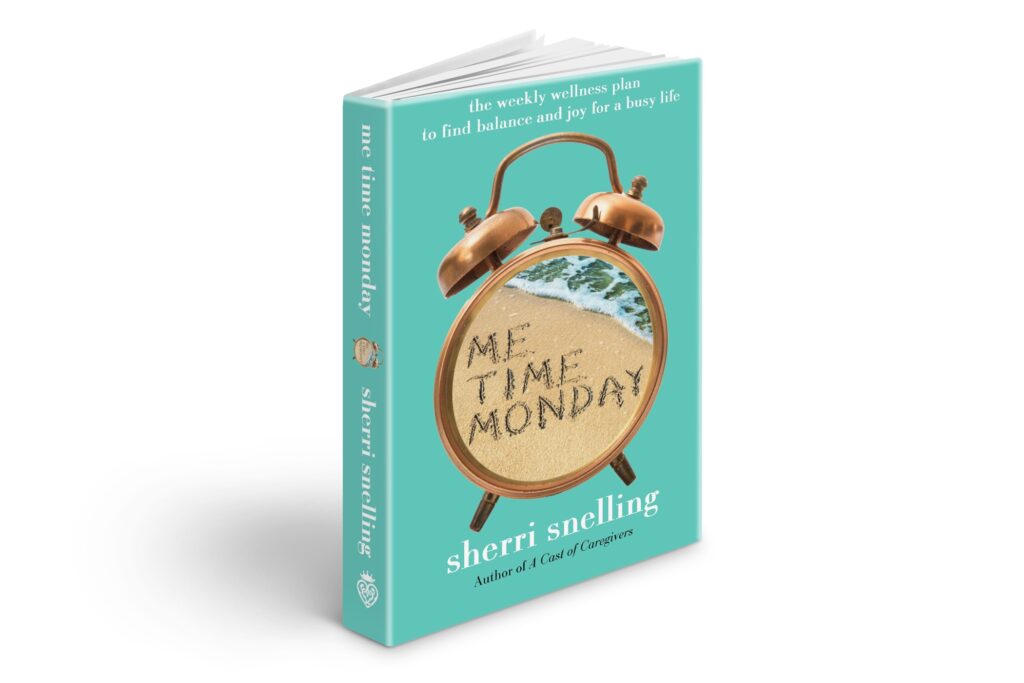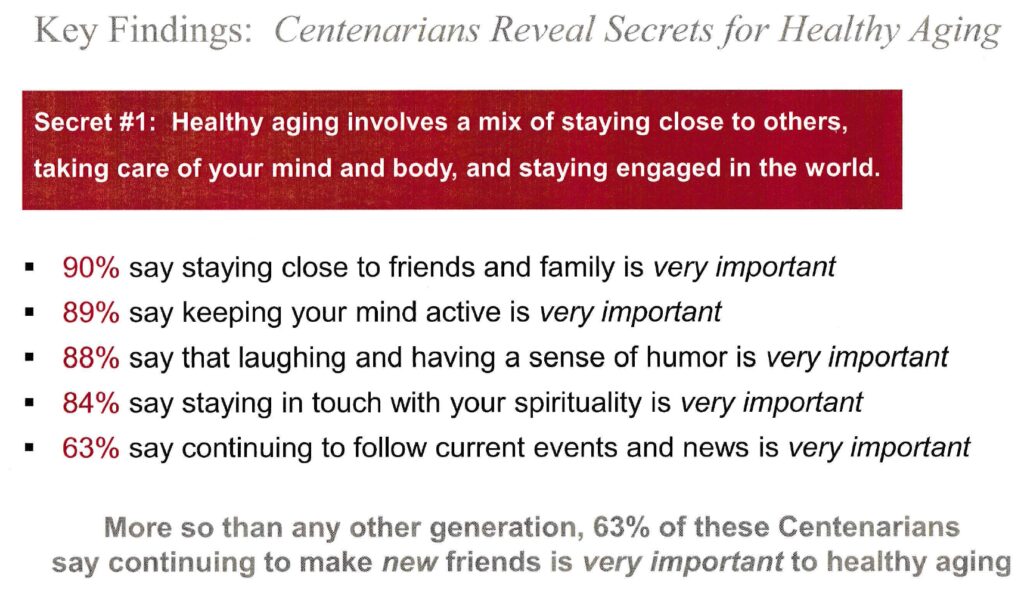News headline: We are living longer. Today, we have 88,000 U.S. centenarians which will grow to 600,000 by 2050. According to the New England Centenarian Study, 1 in every 5,000 Americans are age 100 or more. In fact, 1 in 20 boomer generation women age 63 today is expected to join the centenarian club. When it comes to places, Hawaii has the most centenarians per capita of any state and Loma Linda, Calif. Is the only “blue zone” in the U.S. identified by Dan Buettner (his Netflix series on living to 100 is a must-see).
We often look at living longer, especially into our 100s, as a decline but these examples and so many more (e.g., Norman Lear still entertaining us at age 101) prove age is just a number.
To commemorate National Centenarian Day on September 22, I was interviewed by Tom Basile at Newsmax TV about my new book, Me Time Monday, and the secrets to living longer.
While reaching age 100 can be contributed to a combination of factors including: genetics, environmental factors (e.g., lower air pollution neighborhood and community), being active, eating nutritiously, getting restful sleep, some of the other keys to longevity based on the research for my book include:
- Relationships are #1.
If you want to live longer, invest in your social wellness. Have at least one confidante who has your back, but also have a select group of quality relationships that support you – the IRL (in real life) friends not the URL virtual friends on social media. You also should seek intergenerational experiences (grandkids+grandparents) that keep you engaged in the world and youthful exuberance.
- Live a balanced life of meaning and joy.
This is straight from my book defining a balanced life as practicing small wellness activities in these 7 areas of life:
Physical – move every day and eat a Rainbow or Mediterranean/MIND diet, get good sleep
Emotional – Don’t sweat the small stuff – don’t hold onto stress and anxiety instead learn how to be resilient and optimistic (optimists live longer)
Social – stay socially engaged and have quality relationships you can rely on (see #1)
Intellectual – be curious and practice lifelong learning
Environmental – ensure you bring nature (biophilic design) into your home and office (plants matter and boost air care, your mood and brain health!)
Financial – live comfortably but don’t let the pursuit of wealth be your only goal in life. And, remember to give back
Spiritual – be grateful, experience awe and believe in a higher power
- Invest in your personal Joyconomy.
In my book I talk about how we don’t have much control over the U.S. economy, higher inflation and interest rates, rising gas and grocery prices – all of which challenge your financial wellness and can lead to a downward turn in your emotional wellness. However, we do have control over our personal happiness and joy. Finding ways to find joy is what Joyconomy is all about. Centenarians have already learned this – the U Curve of Happiness research shows throughout life we are happiest as we hit our 70s and 80s and happiness continues to climb from there. We are least happy in our late 40s to mid 50s – but hang on because it gets better with age!
The 100@100 Survey
While my book uncovers comprehensive research into wellness and longevity, I also had experience specifically researching centenarians on their secrets. Back in 2005-2009 I led a research project at a large health insurance company called the 100@100 Survey where we interviewed and surveyed 100 Americans over age 100 (a precursor to Dan Buettner’s “Blue Zones” book on global pockets of centenarians). The results were insightful and still relevant even 20 years later:
Part of my work on the 100@100 Survey was to oversee the telephonic survey but also travel around the U.S. interviewing centenarians on their lives. Here are some highlights:

I spoke to one woman who was 104 and told me she’d been married eight times, “Elizabeth Taylor has nothing on me,” she told me. She married her current husband when she was 97 and he was a mere 83. I asked her if she had heard of the term “cougar” for women who marry younger men and she said, “Well, I’m Queen Cougar then because my last five husbands have all been younger.”

A gentleman who was 101 still played in a local jazz bar as a guest saxophonist on Thursday nights. He told me he was living proof a daily scotch won’t kill you.

Another woman, age 102, tended her rose garden every day and still drove. She proudly told me she was born before there were cars everywhere and in her entire lifetime she had never had an accident or a ticket.

Learn more about longevity and the lifelong journey to wellness and joy in my new book, “Me Time Monday – The Weekly Wellness Plan to Find Balance and Joy for a Busy Life.”
©2023 Sherri Snelling






0 Comments